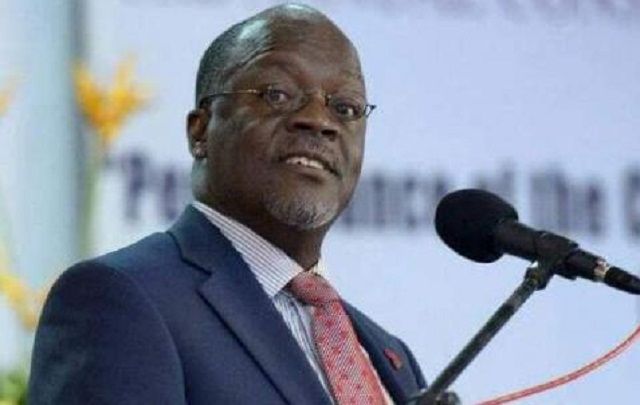
Nairobi, Kenya | AFP | Tanzania’s opposition parties on Wednesday declared they would join forces in a campaign against the “dictatorship” of President John Magufuli.
“The government has launched a war against opposition parties,” six groups said in a joint statement issued after a four-day meeting.
“We declare the year 2019 will be the year in which we fight for democracy, the year in which we fight to recover our rights which have been trampled upon in breach of the law and the constitution.”
The meeting brought together the four opposition parties represented in parliament, and two smaller parties.
“It has become customary for the head of state and his supporters to treat opposition leaders or any person critical of the government as agents of foreign powers, as people without patriotism,” the statement said.
“That’s enough! The time has come to strengthen our unity and solidarity to fight this dictatorship.”
The parties called on their followers to “overcome fear, be united to protect democracy in our country”.
The statement said the parties were legally recognised and would campaign within the limits of the law.
“We are going to officially publish the schedule for our public rallies in all corners of the country, we will not yield to any legally unfounded ban,” the statement said.
Critics say Magufuli has unleashed a wave of oppression since his election in 2015, cracking down on opposition figures, the media and gays.
Opposition lawmaker Tundu Lissu narrowly escaped an attempt on his life in September 2017, while Freeman Mbowe, head of the main opposition party Chadema, was arrested last month after twice failing to appear in court to face charges of illegal protest.
Mbowe and fellow defendants are being tried for their role in a march during which a 22-year-old student was killed by a stray bullet fired by police.
In November, the United States accused the Tanzanian government of fostering “an atmosphere of violence, intimidation and discrimination”.
The European Union, Tanzania’s biggest development partner, also said it would comprehensively review its financial support — more than $100 million (88 million euros) each year — in response to moves undermining “human rights and the rule of law”.
 The Independent Uganda: You get the Truth we Pay the Price
The Independent Uganda: You get the Truth we Pay the Price





